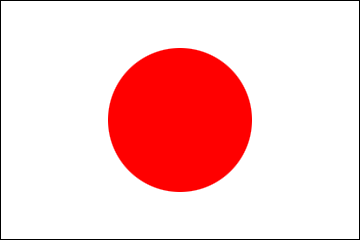Development Cooperation
2023/6/14
Development Cooperation between Japan and Rwanda
Japan’s engagement in the development of Rwanda, where about 60% of the population lives under the national poverty line (UNDP, 2009), supporting the government in its quest for poverty reduction through economic development, fits the goals of Japan’s Official Development Assistance (ODA) for sustainable development under the TICAD IV process. A stable development of Rwanda will further contribute to peace consolidation of the Great Lakes region. Since 2004, the Annual Bilateral Policy Dialogue has been held to discuss Economic Cooperation between the two countries as to align the courses of this cooperation with the Rwandan development goals of Economic Development and Poverty Reduction Strategy (EDPRS) as well as Vision 2020.
Japan delivers assistance to Rwanda by way of technical cooperation and grant assistance with the focus on three areas of development as follows. (1) Human Resource Development, (2) Rural Development, and (3) Economic Infrastructure and Industrial Development.
For the efficient and effective delivery of aid, Japan has also been working with other international donors to discuss ways of harmonizing and maximizing aid, the process is called the Division of Labour (DoL). In a meeting with a Development Partners Coordination Group (DPCG) in June 2010, Japan agreed to focus on three sectors namely Education, Agriculture and Water and Sanitation as an active donor, besides the two sectors of Energy, ICT and Infrastructure as a silent donor.
Japan delivers assistance to Rwanda by way of technical cooperation and grant assistance with the focus on three areas of development as follows. (1) Human Resource Development, (2) Rural Development, and (3) Economic Infrastructure and Industrial Development.
For the efficient and effective delivery of aid, Japan has also been working with other international donors to discuss ways of harmonizing and maximizing aid, the process is called the Division of Labour (DoL). In a meeting with a Development Partners Coordination Group (DPCG) in June 2010, Japan agreed to focus on three sectors namely Education, Agriculture and Water and Sanitation as an active donor, besides the two sectors of Energy, ICT and Infrastructure as a silent donor.
Grant Assistance for Grassroots Human Security Projects (GGP)
In 1989, the Government of Japan introduced Grant Assistance for Grassroots Human Security Projects (GGP) in order to respond to diverse development needs in developing countries. The aim of GGP is to provide financial assistance to non-profit development organizations for implementing projects at community level. The followings are the types of non-profit development organization which are eligible to apply. Individuals or private firms are not qualified to apply under this scheme.
- Community-Based Organizations
- Local & International NGOs (Non-Governmental Organization)
- Local authority (Ex. City Council, District)
- Educational Institutions (ex. School management committee)
- Medical Institutions (ex. Hospital Management Committee)
- Research Institutions
- Brochure(PDF)
 (3.4MB)
(3.4MB) - Application form(Word)
 (139KB)
(139KB) - Guideline(PDF)
 (1.3MB)
(1.3MB) - Recent funded projects(PDF)
 (41KB)
(41KB)
